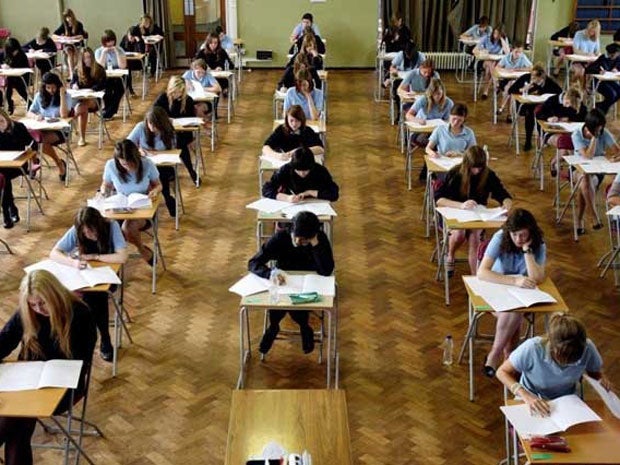Controversial GCSE ranking system to be overhauled
Schools will be ranked on pupils' best eight GCSEs in future

The controversial ranking of schools by the percentage of pupils gaining five A* to C grades in GCSE including maths and English is to be scrapped by ministers.
Instead, secondary school exam league tables will rank them on their performance in their best eight GCSE subjects - and measure them against how well schools in similar circumstances perform.
The move were announced by Schools Minister David Laws who told MPs today that the present system gave schools “a huge incentive to focus excessively on the small number of pupils around the five Cs borderline”.
"This is unfair to pupils with the potential to move from E grades to D grades or from B grades to A grades,” he added.
In future, a school’s league tables results could look like this: a ranking of, say, +0.4 showing how it performs against similar ability peers; a B-, the average grade per pupil across their best eight GCSEs; 65 per cent, the percentage of pupils getting C grade or above passes in English and maths; and 34 per cent - the percentage of pupils attaining the English Baccalaureate (five A* to C grade passes in the core academic subjects of English, maths, science, languages and a humanities subject like history or geography.
Mr Laws told the Commons the new measures would stop schools - particularly in affluent areas - being able to “coast”, adding: “These schools find it easy to hit targets based on five C grades. The school may look successful but Cs are not a success if pupils are capable of more.”
The new measures were broadly welcomed by headteachers, tonight with Russell Hobby, general secretary of the National Association of Head Teachers, saying: “For the first time league tables will value the achievement and progress of every child equally rather than just those on the C/D borderline.
“They put an appropriate emphasis on English and maths but also recognise achievement across a broader curriculum.”
However, leaders of the National Union of Teachers were worried about a proposal to devise a new ranking - showing the destination of all school leavers. Christine Blower, its general secretary, said it would “cause great consternation for those in areas of high unemployment or whose pupils cannot afford to go onto further education”.
Join our commenting forum
Join thought-provoking conversations, follow other Independent readers and see their replies
Comments
Bookmark popover
Removed from bookmarks